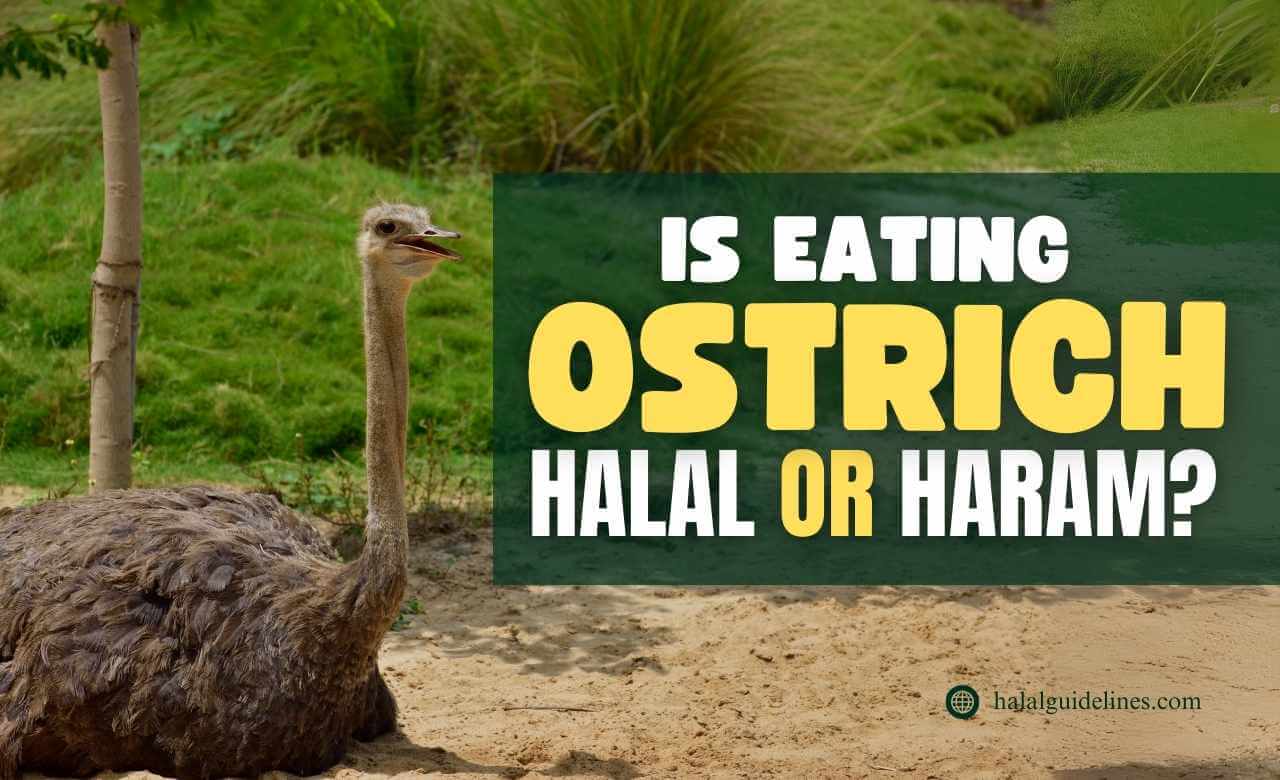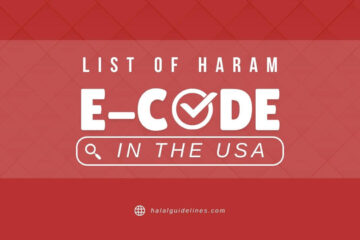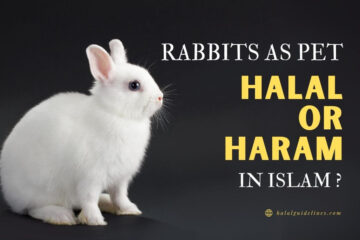This includes saying “Bismillah” and “Allahu Akbar” before the slaughter and confirming the animal is treated humanely. The meat of an ostrich, like other halal animals, should be free from any haram substances or contamination that would make it impure (Najis). Also, their eggs are halal to eat.
The Islamic Perspective on Bird Consumption
Islam provides clear guidance on what is permissible (halal) and forbidden (haram) for consumption, including birds. The Quran and Hadith highlight that Allah has made many good and pure foods while forbidding harmful or impure ones.
Birds, when non-predatory and slaughtered properly, fall under the category of halal food. This guidance helps us to eat in a way that is good for both our body and soul.
Quranic Guidance Eat Lawful and Be Grateful to Allah
The Quran provides Muslims with clear guidance on what is lawful to eat and highlights purity and wholesomeness. When it comes to birds, the Quran addresses their permissibility indirectly, highlighting the general principles of halal food and lawful provisions.
فَكُلُوا۟ مِمَّا رَزَقَكُمُ ٱللَّهُ حَلَـٰلًۭا طَيِّبًۭا وَٱشْكُرُوا۟ نِعْمَتَ ٱللَّهِ إِن كُنتُمْ إِيَّاهُ تَعْبُدُونَ
So eat from the good, lawful things which Allah has provided for you, and be grateful for Allah’s favors, if you truly worship Him alone
Reference: Surah An-Nahl – 114

Hadith on Eating birds
The permissibility of eating birds that do not use talons for hunting is based on the hadith of the Prophet Muhammad (peace be upon him).
Here is the hadith:
كُلُّ ذِي نَابٍ مِنَ السِّبَاعِ فَأَكْلُهُ حَرَامٌ، وَكُلُّ ذِي مِخْلَبٍ مِنَ الطَّيْرِ فَأَكْلُهُ حَرَامٌ
Every predatory animal with fangs and every bird with talons is forbidden to eat.
Reference: Sahih Muslim, Hadith 1934
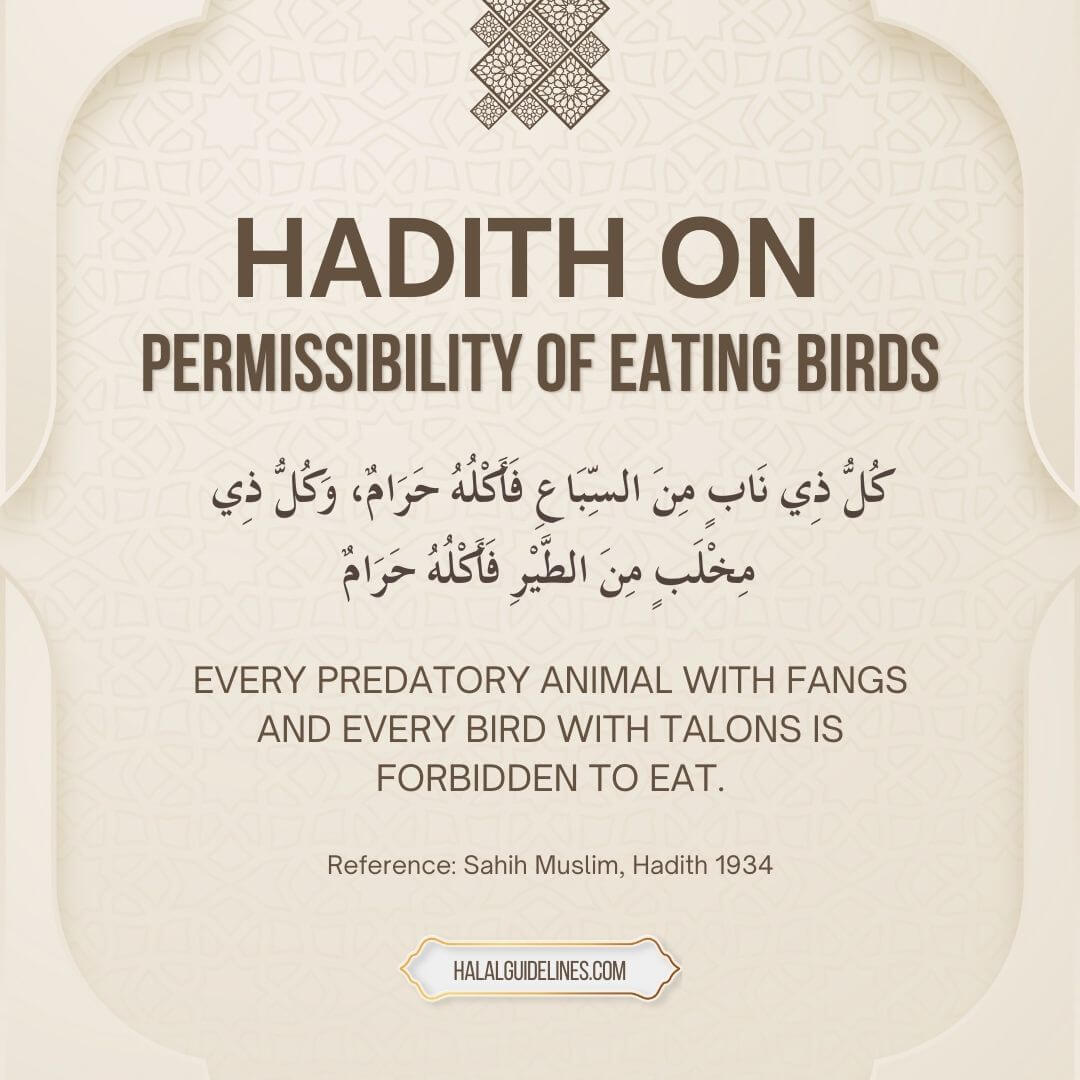
Islam provides a balanced approach to food consumption, focusing on what is beneficial and lawful. Birds that are non-predatory, clean, and slaughtered according to Islamic guidelines are permissible for us.
By following the teachings of the Quran and Hadith, we can make sure our diet aligns with our faith, bringing both physical nourishment and spiritual blessings.
Read more related articles below:
- Is Eating Bear Meat Halal Or Haram?
- Are Dogs Haram as a Pet?
- Are Snakes Haram Or Halal to Keep as Pets
- Are Rabbits Halal Or Haram As Pet?
Categories of Birds in Islamic Dietary Law
Muslims are generally permitted to consume most domesticated and wild birds, provided they are not predatory. This includes a wide variety of birds that are commonly found in both urban and rural areas.
Here are the birds listed below that we are allowed to eat and are not allowed to eat:
| Halal Birds (Permitted) | Haram Birds (Prohibited) |
|---|---|
| ✅ Chicken | ❌ Eagles |
| ✅ Duck | ❌ Hawks |
| ✅ Goose | ❌ Falcons |
| ✅ Pigeon | ❌ Vultures |
| ✅ Quail | ❌ Kites |
| ✅ Sparrow | ❌ Owls |
| ✅ Turkey | ❌ Ravens |
| ✅ Ostrich | ❌ Crows |
| ✅ Guinea Fowl | ❌ Buzzards |
| ✅ Peacock |
The main difference comes from the bird’s nature. Birds that eat plants and are not hunters are allowed, while birds that hunt with talons are not. This rule follows Islamic principles, which say we can eat peaceful, not carnivorous, animals.
Halal Slaughtering Guidelines for Ostriches
When slaughtering ostriches (or any animal) for consumption, it is important to follow the halal guidelines set by Islam to ensure the meat is permissible to eat. The process must be done with care and respect for the animal, by Islamic principles.
Here is a step-by-step guide on how to slaughter an ostrich in a halal manner:
1. Confirm that Ostrich is Alive Before Slaughtering
The ostrich should not be dead before the slaughter. If the animal is already dead (or not slaughtered properly), the meat becomes haram (forbidden). The animal must be alive at the time of slaughter to be considered halal.
2. Intention (Niyyah) and Saying “Bismillah”
Before slaughter, the person must have the intention (niyyah) to do it for the sake of Allah and say “Bismillah” (In the name of Allah) and “Allahu Akbar” (Allah is the Greatest).
3. Use a Sharp Knife
A sharp knife should be used to ensure a quick and humane slaughter. The knife must be clean and free from impurities.
4. Sever the Throat, Windpipe, and Blood Vessels
The slaughtering process must be done by cutting the animal’s throat, windpipe, and major blood vessels (jugular veins and carotid arteries). This allows the blood to drain out of the animal’s body, which is essential for making the meat halal.
5. Let the Blood Drain
After making the proper cuts, the ostrich should be allowed to hang and the blood should fully drain from its body. The draining of blood is crucial in making the meat halal, as consuming blood is forbidden in Islam.
6. Handling the Meat After Slaughter
Once the blood has been drained, the ostrich meat can be processed and prepared for consumption. It is important to handle the meat carefully, ensuring that it does not come into contact with any harmful substances or contaminants.
Halal slaughtering is a careful process that verifies both the ethical treatment of the animal and the permissibility of the meat. Through this, we as Muslims can confirm that the ostrich meat they consume is lawful and pure, in line with the teachings of Islam.
Nutritional Benefits of Halal Ostrich Meat
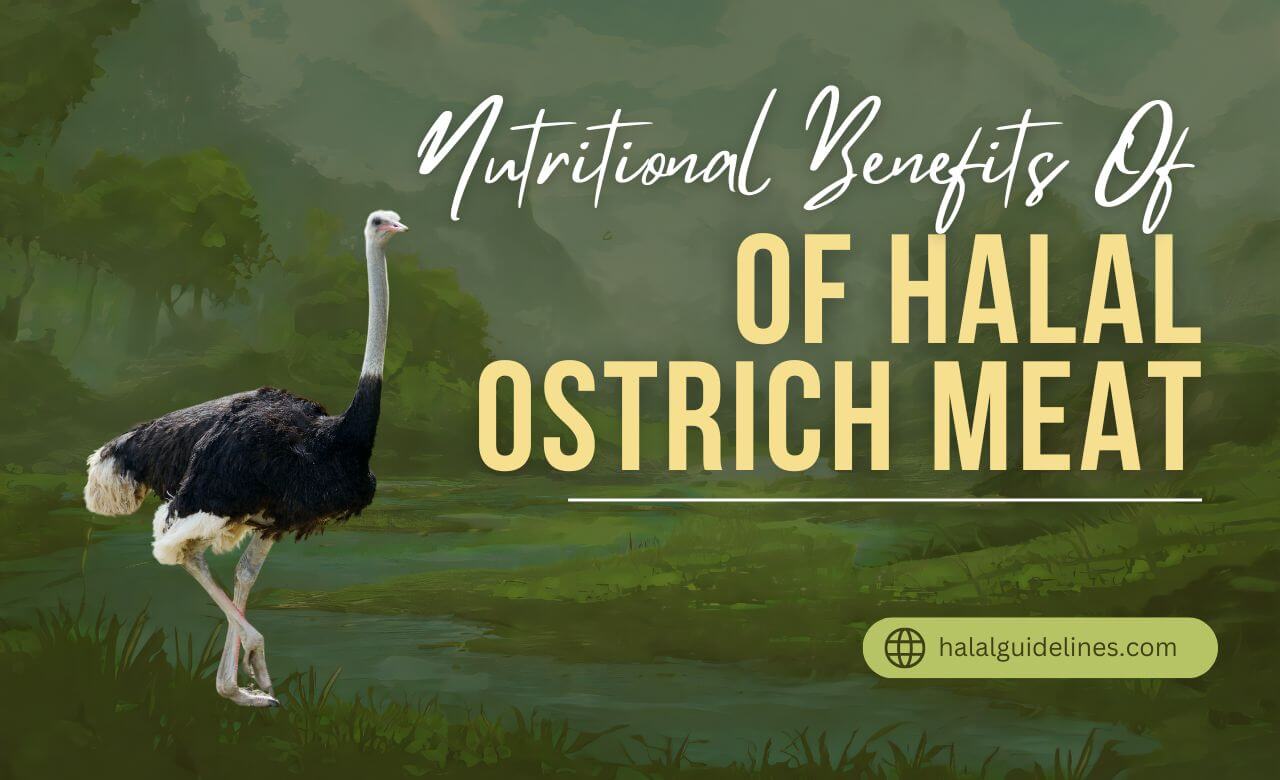
Ostrich meat is a powerhouse of nutrition that offers numerous health advantages for those seeking a lean and nutritious protein source. Unlike traditional red meats, ostrich provides an exceptional nutritional profile that makes it an excellent choice for health-conscious individuals.
1. Protein Powerhouse
Ostrich meat stands out as an incredibly protein-rich food, offering approximately 22-26 grams of protein per 100 grams. This high-quality protein supports muscle development, tissue repair, and overall body function.
For individuals looking to maintain muscle mass or support an active lifestyle, ostrich meat provides an ideal protein source.
2. Low-Fat Champion
One of the most remarkable characteristics of ostrich meat is its incredibly low fat content. Compared to beef, chicken, and other meats, ostrich contains significantly less fat – typically around 2-3 grams per 100 grams.
This makes it an excellent option for:
- Weight management
- Heart health
- Individuals following low-fat diets
3. Essential Nutrients
Beyond protein, ostrich meat is packed with essential nutrients:
- Iron: Supports oxygen transportation and prevents anemia
- Zinc: Boosts the immune system and supports metabolism
- Vitamin B12: Essential for maintaining nerve health and supporting the formation of blood cells.
- Selenium: Provides antioxidant protection
- Niacin: Supports energy metabolism
4. Cholesterol Management
This bird meat contains lower cholesterol levels compared to other red meats, making it a heart-friendly protein option. Its lean composition helps maintain healthy cholesterol levels while providing rich, satisfying flavor.
5. Culinary Versatility
Not only is ostrich meat nutritionally superior, but it’s also incredibly versatile in cooking. Its mild flavor allows it to be prepared in various ways grilling, roasting, stir-frying making it an exciting addition to various cuisines.
Ostrich meat represents an exceptional nutritional choice, offering a perfect blend of high protein, low fat, and essential nutrients. Its unique nutritional profile makes it a smart choice for traditional meats for those prioritizing health and wellness.
Final Wording
As Muslims, we are blessed to have guidance from Allah that helps us make the right choices about what we eat. Islamic dietary laws give us clear rules for eating halal food, which is good for both our body and soul. These guidelines make it easy for us to eat with confidence, knowing we are following the path Allah has set for our well-being.
By learning and following these principles, we can turn our eating habits into a way of worship and showing thanks to Allah. Choosing halal food is not just about rules it’s about respecting the balance Allah has created for our health and faith.

